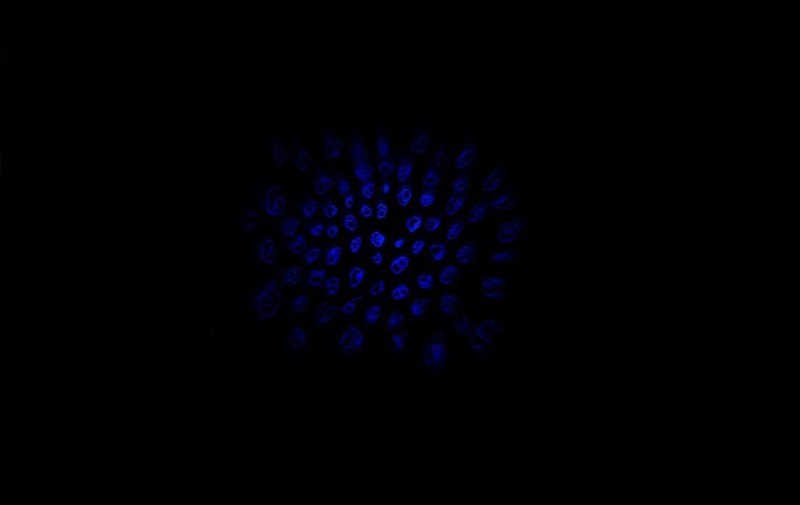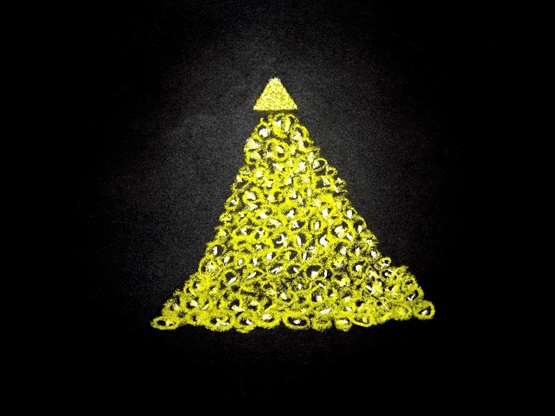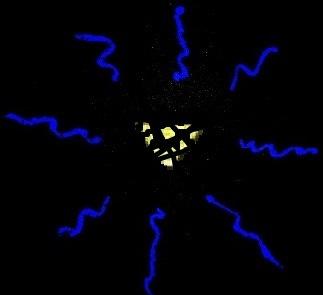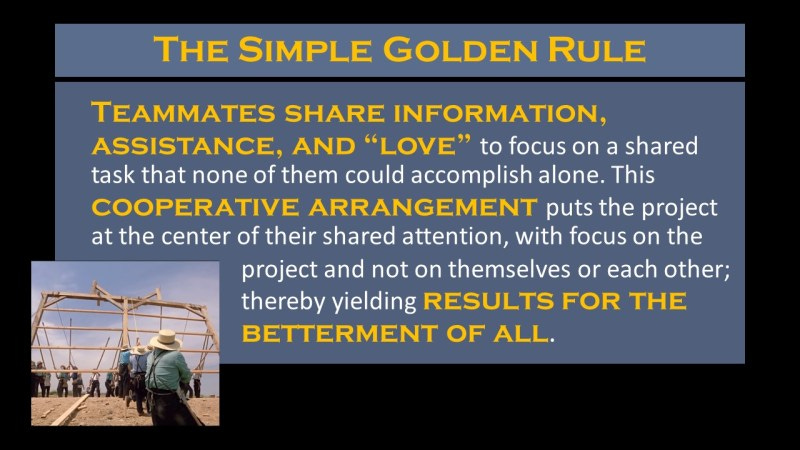Today I’m going to re-record and re-present an episode from October of 2021. You probably haven’t heard it or don’t remember it. I had just gotten braces in 2021 and the actual recording itself is pretty poor. Well, you can tell it’s a person who just has fresh braces on their teeth, so we don’t have that trouble anymore. It’s a pretty long episode and it was originally entitled, As Below, So Above, Inferring the Transcendent. I’ve also dropped in some new insights concerning politics…
You realize that the manner by which we are mining gnosis here at Gnostic Insights often involves using analogies between what is known and what is less tangible. As Below, So Above provides a handy tool for inferring otherwise undetectable aspects of the spiritual dimension. If we start with the premise of a singular consciousness that pre-exists everything that came after it, then we can follow the genesis of our universe from that consciousness step by step.
In today’s episode, we’re going to map aspects of our human personalities onto the Gnostic Gospel to see what we can infer about ourselves down here below and about forms of consciousness above. So, what do we know by now? We generally begin at the beginning and build outward from there, so we start with consciousness. We know that all life forms are conscious and we infer from that a ground state of consciousness and that is what we call the Father. The Father, or consciousness itself, is not the same as having thoughts. It is simply self-awareness. It is the no-thought state that people seek through meditation.
Then we say that consciousness, or the Father, or what we call in the Simple Explanation, the metaverse, had a thought. This thought is a ripple in consciousness that arises out of the undifferentiated state of no-thought. The Gnostic Gospel calls this thought the Son. The Son reflects the consciousness of the Father in a circumscribed form. That is, circumscribed means contained, like drawing a circle around something. And in this case, the Son was a circle drawn around the Father’s consciousness.
Yet, the Son is not lesser than the Father because there’s no size or distance here and there is no time or space in the eternal omnipresent. The Tripartite Tractate says that no sooner did the Son arise than it had its own thought, which differentiated into every possible thought, like rays of light shooting out from a central star. The Son, mirroring the creative act of the Father, gave rise to himself in the form of countless thoughts.
These thoughts became aware of themselves in the same manner that the Son became self-aware. The moment they became self-aware, they named themselves, and the moment they named themselves, they sorted themselves into a hierarchy of relationships with one another. These thoughts of the Son are called Aeons, and the hierarchy into which they arranged themselves is called the Fullness of God, also known as the Pleroma.
The Aeons consist of names, stations, ranks, duties, and locations. This is another way of saying that the Aeons form a kind of geometry of functions and forms that we all know where and what and who they are in relationship with each other. Within the Hierarchy of the Fullness, all Aeons have their own identities, as well as their self-assigned locations and functions. Everyone knows who they are and where they stand in their intermingled ecology. Each Aeon occupies a unique place and perspective within the union of the Fullness. No one is left out, and no one is more important than any of the other Aeons in the hierarchy.
The Fullness reflects the entirety of the Son. They coexist and overlap. The Son wears the Fullness as a garment, and the Fullness wears the Son in the manner that our own bodies can be said to be a garment for our souls. Our bodies contain and coexist with ourselves. The Fullness is a singular entity composed of countless Aeons in the same way that our bodies are a singular organism composed of countless cells. The Aeons sat in a unified state.
All for one and one for all is their motto. Their main function is to love and to be loved. They love each other. They love the Son. The Aeons love the Father and give constant glory to the Father, so happy were they to be alive. The Aeons yearned for communion with the Father, for they recognized themselves as the fruit of the Father.
In the same manner that blood flows throughout our bodies, delivering oxygen and nutrients to every cell, the Holy Spirit of the Father’s consciousness flowed through the Aeons of the Fullness, constantly feeding them love. Although the Aeons dwelt within the single body of the Fullness, they were each an independent self. Their immense variety required them to work together and remain in full agreement, for only through their union could they approach the Father’s greatness. It was only in their unanimity that they reflected the perfection of the Son, and only the Son had direct access to the Father. If they were not in complete agreement, then they could not add up to the Fullness of the Son. It was through giving glory to the Father that the Fullness remained unified as one body.
Giving glory means focusing upon an object with adoration and love. The Tripartite Tractate tells us that there was a simple set of rules that ensured the unanimity of the Fullness. In order to remain aligned with the Father, the Aeons needed to glorify only the Father and never themselves. The Aeons were not to glorify their neighbors, neither those beside them nor those above them. They were not to glorify the Fullness as a whole. Rather, their focus was to remain upward, giving glory only to the Father. Furthermore, each Aeon was to give glory from its own location in the hierarchy, with its own talents and capabilities, and not borrowing the talents of its neighbors.
Our universe began with the Fall. The Tripartite Tractate calls the Aeon who fell Logos. That is a significant name. Logos is defined as the principle of order and reason. If we think of the Logos within ourselves, we would align Logos with our mind’s reasoning capabilities, including the ability to apply logic and make inferences.
The Tripartite Tractate says that Logos was the final Aeon produced when the Aeons sorted themselves into their hierarchical arrangement of the Fullness of God. This Aeon, Logos, contained within itself not only the ability to reason, it also contained all of the traits and abilities of the Fullness, wrapped into a single package. In terms of the Simple Explanation, we would say that Logos was the perfect fractal of the Fullness, carrying within itself all of the knowledge and functions of all the other Aeons.
The Bible’s Gospel of John identifies this Aeon called Logos as the Son, but this is an error according to Gnostic cosmology. As we just laid out in the cosmology, the Son is the first fruit of the Father, and the Son is the Father of the Fullness. The Aeon who fell is but one Aeon out of the Fullness. Yes, you can see how Logos reflects the Son being a fractal of the Fullness of the Son. However, it is only a fractal, an iteration of the Son in a lesser form, not to be confused with the Son who precedes it and is more exalted than the Aeons. The Aeon called Logos carries fractal copies of all the Aeons within itself, but these aeonic copies are not each self-aware in the way that the Aeons themselves are self-aware.
The aeonic copies contained within the Aeon known as Logos are not themselves conscious. They are merely fractal reflections of the hierarchy, but lacking the consciousness of the Aeons, a resemblance of the Aeons only on the surface, lacking the depth of thoughts. The Tripartite Tractate tells us that the Aeon known as Logos yearned to reunite with the Father, as did all of the Aeons.
But rather than sitting with the others in the Fullness, giving glory according to the rules of unanimity, Logos had a thought that deviated from the rules. Logos had its own singular bright idea. This idea came to be known as the presumptuous thought in Gnostic cosmology.
Presumptuous means failing to observe the limits of what is permitted or appropriate. What Logos decided to do was to reach out to the Father all on its own. In other words, Logos mistook its own personal will for the will of the Fullness of God.
Logos mistook himself, you can say, for the Son. It is this presumptuous thought, born out of misplaced love for the Father, that caused the Fall. This presumptuous thought was the original sin. Christianity continues to make the same error of identification that Logos made. Logos is not the Son. Logos is the Aeon who fell. Logos separated himself from the Fullness of the Son when it took action on its own. This action of leaving the Fullness to strike out on its own is the first act of the ego. The ego of Logos brought about the Fall.
This action of ego is the true nature of the Fall, not a human handing another human forbidden knowledge in the form of a magic apple. The Fall is birthed by the ego acting outside of the will of God, which is to say, ego putting itself on the throne and making decisions on its own. And this is very true of our own personal human psyches as well.
When the ego displaces the Self at the center of our unit of consciousness, as we call it in the Simple Explanation, then we are allowing our self-centered ego to run the show. Ego displaces the One Self we share with the Fullness and the Son. And it’s all downhill from there.
Logos fell and broke apart into the poor weak imitations of the Aeons above, and because they were no longer arranged in the orderly ecology of the Fullness, the imitations lacked places, functions, and names, throwing them into a disordered state of chaos. The imitations of the Aeons were not self-aware in the manner of the Aeons whose figures they mirrored, and this lack of consciousness manifested only disturbance, upheaval, and confusion. These phantoms of the deficiency did not reflect in any way the glory of the Fullness, the Son, or the Father. They were feeble, small, and unruly. There was no cooperative will among them. There was no Golden Rule.

And I’m going to stop here for a moment from the original text of 2021 and insert this thought: Boy, it sounds like politics today, doesn’t it? It seems to me that we can liken, for example, the Constitution of the United States to the agreement amongst the Fullnesses to work in unanimity and cooperation with each other, and we can liken the Fall of Logos to those politicians who disregard the unanimity and basic structure of the Constitution. They are working out of ego. They are working out of personal power, striving for power. So they disregard the rules of how things were designed to work, and they say, to heck with the rules, I know what’s right. I’m going to do this, and I’m going to do that.
I’m just dropping in that thought for your consideration. Now, let’s get back to the original text.
In The Gnostic Gospel Illuminated, my previous book, on pages 20 and 21, I said, “Presumptuous thought and arrogance replaced the wisdom granted by the Father, and Logos lost himself to ignorance and oblivion. Everything he produced, as a result, fell disastrously short of his intended glory. The imitations produced as a consequence of the Fall lacked the ability to reason. Their only thought was for themselves, arising as they did from division. They thought they were all there was, and they admired only themselves, not realizing they were but dark shadows of the Aeons of the Fullness. Because Logos had been reaching for the heights when he fell, the imitation of the Fullness that emerged from the Fall kept trying to reach the unreachable. Only now, what had been a desire of the Aeons to reunite with their Father became an upward striving for power. Personal ambition eclipsed the Father’s will.”
And again, jumping back into my analogy between Constitutional directives and the personal ambition and wills of politicians who hold power and only care about power, they may say they have good intentions, like Logos did when he was reaching for the Father, but actually they’re working out of egoic striving for power, and nothing good can come of that. Only ignorance and darkness arises from that, as it did with Logos when he fell.
Okay, jumping back into the text, and by way of analogy, so it is with all of us, when our ego holds the throne of our unit of consciousness, as we’ve been saying in the Simple Explanation terms, when our ego is put in the center rather than the Self, with the big S, the Self, then we experience the same sort of self-centered ambition, and the only drive becomes power. When the Self sits at the center of our consciousness rather than our ego, then our Self is in full alignment with the One, with the Son, and with the Fullness.
The Tripartite Tractate says that the best part of Logos was horrified by the chaos it had created and fled back to its brethren in the Fullness, abandoning the broken imitation. So, let us consider what of Logos was left behind when the best part of the Aeon abandoned the deficiency. The answer would be ego.
The ego of Logos had no remembrance of the Fullness of the Father, for the Self that fled back to the Fullness was the sliver of consciousness that remembered the Father. The ego of Logos, abandoned below, continued to believe that it was all there was, having forgotten the true nature and source of consciousness. The ego of Logos did not remember love or the life of the Pleroma.
As the best part of Logos had vacated, the ego of Logos took over management of the Fallen deficiency. We know from both the Bible and from the Tripartite Tractate that the God of this universe brought order to the chaos, forming the heavens and the Earth. However, since the creations of the Fall lacked self-awareness and intrinsic order, they needed to be ruled with an iron fist. Lacking Aeonic cooperation and unity, the imitations of the deficiency required their every move to be directed by the ego of the Fallen Aeon. The God of this cosmos is known as the Demiurge in Gnostic studies, a term it borrows from ancient Greek philosophy. The Demiurge is described as an artisan-like figure responsible for fashioning and maintaining the physical universe.
In the Bible, and here’s the heresy—the God of this universe is known as Yahweh, or Jehovah. Unfortunately, this God, the maker of the heavens and the Earth, is not the same as the Father above, as we have seen from this rollout of the Gnostic cosmology. The Demiurge is a sleight of hand misdirection from the true source of life and light.
This is one reason I like to begin these discussions with the Father and show the relationship of the Father to the Son and the Son to the Aeons of the Fullness in order to demonstrate that this is not the same Father as the one we were taught to consider the Almighty. The God of this earth and of this material universe was created out of ego during the Fall. This God is the fruit of the original sin. This is definitely not the God Above All Gods, who is our right and proper source of consciousness and the glorious focus of our devotion. This Demiurge, who calls himself the Father, is not the Father above. This Demiurge is only the egoic manifestation of one fallen Aeon.
And I think I’m going to stop the original episode here and we’ll take it up again next week, because it was a long episode.
As I’ve been retelling it to you, I’m constantly reminded of politics today, because of course politics is in the news, right? Politics is everything right now. And the oddness of how those on the left in politics and those on the right in politics do not seem to overlap at all, yet they hold the same desire. I’m sure that all of the good people, all of the citizens, want peace and harmony in the world and amongst themselves and with each other. This lack of peace and harmony that’s coming to a head right now in our nation and in our world, I believe, is a direct result of the Fall. And I think that as I hear about the Fall and what it caused, and how the imitations of the deficiency lack consciousness, they lack love.
They lack, most importantly in my opinion, because I’m a big fan of Logos—they lack Logos. They lack reason, the ability to reason and anticipate the consequences of their beliefs and actions. The politicians are flailing about wanting this and wanting that, and if the people don’t want the this and the that that the politicians are trying to enact, that’s the same way that the Demiurge controls the material universe, through strong bonds. That’s why tyranny is always the result of lack of actually listening to what the people want. Tyranny imposes what it wants, what it thinks is best, and really bottom line is what it thinks is best is that it remain in power.
But the people cannot be controlled through tyranny. The molecules, the atoms, the elements, they can. They can be controlled by those strong bonds of power that the Demiurge uses like a puppet master pulling their strings. And that’s the pattern that the politicians are using. They’re following the Demiurge’s example, and they attempt to control us with strong bonds of powers and strings of control. Thou shalts and thou shalt nots. And you’re going, what? Where did this come from? Who said they could do that? I thought we were a constitutional republic. I thought we were ruled by the rule of the people from the bottom up, not from the Demiurgic rule of the politicians.
What we are seeing here in this political climate, is fractals of As Above, So Below. As above is represented by people working together according to the Simple Golden Rule of reaching out to our neighbors with love, with assistance, and with information to make our nation and our world a better place. This Golden Rule-based politics would put the good of the nation above personal ambition and power. It would focus on the project rather than personalities. It would have a vision that can only be achieved through reasonable measures designed in advance to bring about a particular end.
But what we see today are demiurgic fractals in control of politics and nations. The Demiurge works as a dictator, using strict measures of control meted out by centralized power. The Demiurge desires control, and it cannot allow citizens to have freedom of expression or personal sovereignty. I looked up “political sovereignty” online and Britannica defines it as, “Sovereignty, in political theory, the ultimate overseer, or authority, in the decision-making process of the state,” which is a chillingly accurate description of demiurgic rule. The Ultimate Overseer of this world is the Demiurge, not the people.
Remember, the Demiurge does not know love and has no affection for humans and their pesky free will, whereas the Father and the Fullnesses love us and passed along free will as a God-given part of our 2nd Order nature.
Onward and upward. God bless.
















As Above, So Below